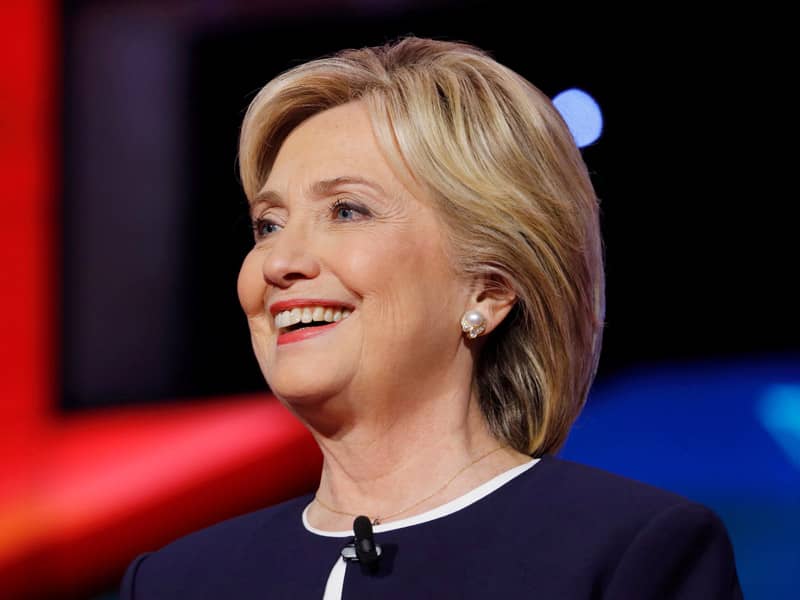Bush is a Methodist. Washington has about a dozen Methodist churches, but they might be filled with the wrong kind of Methodists.
"Unfortunately all of the United Methodist Churches in the District of Columbia are pretty liberal," says Mark Tooley, director of the United Methodist Committee at the Institute on Religion and Democracy in D.C. "I asked several United Methodist clergy--evangelicals--in the area to recommend a traditional church in D.C., and I came up empty."
It is Bush's misfortune that he arrives in Washington at a time when mainline denominations are riven by precisely the same issues that polarize the country. The question that faces him is twofold: Can he find a church whose members are suitably conservative on issues such as abortion, creationism, the death penalty, gay rights, women's rights, the nature of biblical truth, and the necessity of being "born again" in the Spirit? And if not, should he attend a theologically moderate or liberal church?
So far, all Bush will say is that he intends to join a local congregation and will probably announce his choice after his inauguration.
But as the last Republican who ran for president can attest, some influential conservatives disagree with the bishop's assessment.
Bob Dole used to accompany his wife, Elizabeth, to Foundry United Methodist Church, where she had been a member for 15 years. President Clinton and his wife, Hillary, attended the same church. But just as the 1996 presidential campaign was getting underway, the Doles suddenly left the church.
Their departure came a few months after Mr. Tooley had published a biting critique of the writings of Foundry's senior minister, J. Philip Wogaman, in "Faith and Freedom," a quarterly journal published by the Institute on Religion and Democracy, a conservative think-tank, watchdog group, and agitprop production facility. In his article, Mr. Tooley attacked Wogaman's liberal views on gay rights, abortion, and the value of contemporary biblical scholarship.
Syndicated columnist Cal Thomas later repeated these criticisms. When Thomas' column appeared, the Rev. Wogaman was serving as one of three "spiritual advisers" whom President Clinton had turned to in the midst of the Monica Lewinsky scandal. Discrediting the minister was an indirect way for Thomas to cast doubts on the quality of the president's contrition. But, as so often happened with Clinton, his opponent came out of this engagement looking worse than he did.
Liddy Dole had attended Foundry United Methodist for 15 years. The Rev. Wogaman had been senior minister for four. But shortly after the Thomas column appeared, she and her husband decamped for the National Presbyterian Center.
"The fact that they ended up there tells you something about the United Methodist Church in Washington," Mr. Tooley says.
Perhaps, but it also tells you something more unsettling: that a mature Christian man and woman allowed a political pressure group to exercise a veto over where they went to church.
Last summer, the message board outside Lincoln Park proclaimed: "It was Adam and Eve, not Adam and Steve." Some neighbors complained to the District government that the message was anti-gay. Suspending the First Amendment for the afternoon, the District sent a work crew to cart the board away.
The Rev. Harold Lewis, pastor of Lincoln Park, denounced the District and demanded his sign back. He further endeared himself to religious conservatives by hosting a service for Renew, a Methodist group that opposes abortion rights.
There is no doubt that the Rev. Lewis (whom I have not been able to reach) is theologically conservative. He is a former military man. He is also black. So are the great majority of his parishioners.
Would the Bushes join a predominantly black congregation? The style of worship would be different from what they were used to. The president-elect won only 8% of the black vote, so he wouldn't find himself surrounded by supporters. Yet attending a black church would fit nicely into his strategy of reaching out to African Americans through their religious leaders, rather than through the civil rights establishment.
Lincoln Park also passes mustard with Mr. Tooley. "I'd like to see him go there," he says. "Theologically they are sound, and they are pretty biblical in their preaching."
If Bush did choose a black church, some commentators would no doubt dismiss it as a political move. But in the current political and religious climate, choosing any church is a political move.

